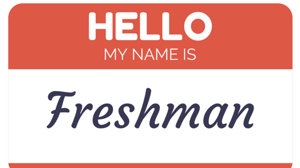Six years ago, Kevin Plummer offered me the job of Head of the Upper School at Tampa Prep. As I researched the school and then experienced it firsthand when I interviewed, one aspect of the school culture in particular was incredibly attractive. The faculty, administration and staff were unafraid to boldly pursue the answer to the question, “What is best for students?”
After spending my entire career working in two outstanding New England independent schools, I wanted to be part of a culture that was willing to innovate in a quest to answer that question. In my first year at Tampa Prep we launched the 1:1 iPad program and shifted to an 8:50 a.m. start time. Over the past six years more innovations for the students followed including renovations of middle and upper school academic spaces, evaluated homework policies, new academic concentrations, a virtual reality lab, and continually refining a class seminar curriculum. There are so many opportunities for students to explore new things, to pursue their passions, to achieve success, and also to take risks and make mistakes as they mature.
As we approach the end of the second decade of the 21st century, we continue to relentlessly chase the answer to the question of what is best for kids. Throughout this school year, a group of faculty and administration have taken a deep dive into some trends that concern us, such as:
- The transition to high school seems increasingly difficult for many students.
- Increasing numbers of students lack the organizational skills required for success in high school.
- Students seem to have more anxiety and are less resilient when faced with setbacks.
- We are in the middle of a national vaping epidemic.
- Student perceptions about academic integrity have shifted.
Our anecdotal experiences at Prep mirror these national trends. Since part of our mission is to aspire to excellence, and our collective DNA causes us to act, to lead, and to find our answer for how to do what is best for our students, we have worked toward a solution.
Thus, in order to better support students, Tampa Prep has designed a Ninth Grade Transitions Program that will help to smooth out the start of high school. It will involve:
- A change in our administrative structure
- A new required class for all freshmen
- Developing a more intentional support network

CHANGE IN ADMINISTRATIVE STRUCTURE
To better support students, parents and faculty, we are adding an additional full-time position, completing a search for a Dean of Students. Our current Dean of Students, Christine Jisha, will continue to serve as Academic Dean, and will have an expanded role as Ninth Grade Dean to oversee all aspects of the Ninth Grade Transitions Program.
In addition to Mrs. Jisha’s expanded Class Dean role, Tampa Prep has hired a second Academic Support Counselor to supplement the outstanding work done by our current Academic Support Counselor, Sarah Johnson. This will allow Mrs. Johnson to provide more specific support to ninth grade teachers, students, advisors, and parents. Jody Rodriguez, Registrar and Assistant to College Counseling, will continue to serve as a ninth grade liason in the College Counseling Office.
REQUIRED FRESHMAN CLASS
As a centerpiece of our new Transitions Program, all incoming freshman are required to take a first-semester Transitions class. The curriculum for this class was created by History & Social Science teacher Lisa Harman, with input from a wide variety of faculty. The course proposal, approved by the Curriculum Committee, states:
The rationale for offering the course includes interest from students, parents, and faculty to create a system to reduce anxiety/stress for the transition to high school. There are essential skills and lessons that we wish freshmen students had time to learn and then put into practice--with space to test, fail, and try again. Additionally, it creates opportunities to link First Week, advising, and class seminar sessions to build on what is covered in Transitions class. As this class continues, it will also allow for programming in 10th, 11th, and 12th grade that builds on the work completed in the ninth-grade year.
Topics covered in the class will include:
| Tampa Prep Mission, Values & History | Academic Support | Goal Setting | Calendaring |
| Health and Wellness | Mindfulness | Social Media | Financial Literacy |
| Digital Citizenship | Ethics | Gratitude | Community Service |
| Dealing With Stress & Anxiety | Exam Preparation |
The course is designed to have a mix of presentation styles including outside speakers from groups like Freedom from Chemical Dependency (FCD), who will present on vaping.
DEVELOPING A MORE INTENTIONAL SUPPORT NETWORK
Essential to student success is a close partnership between parents and the school. We will be explaining our Transitions Program in more detail in two different presentations. On April 30 we are having a morning presentation for current eighth grade parents, and on May 11 we have a presentation for parents of incoming 9th grade students who are new to Tampa Prep. It is our goal to have expanded education opportunities throughout year with parent coffees, evening speakers and possibly podcasts and videos.
Tampa Prep is Florida’s most innovative school. This statement is often associated with technology, where we are a leader in the world of education. However, we have an equally rich history of innovation in the area of health and wellness. The Ninth Grade Transitions Program is a next step in our relentless pursuit of answering the question of “what is best for kids?”. I am extremely excited about the potential impact of this course on the incoming ninth grade class, and look forward to working closely with Chrissy Jisha, Lisa Harman, Sarah Johnson, Michele Cole, advisors, teachers, and parents throughout the year to support our freshmen and to help provide a setting where students can be their best.